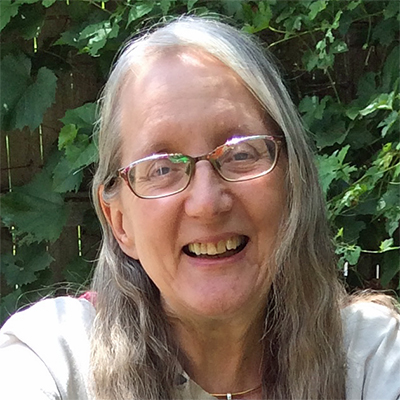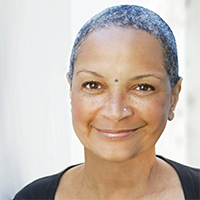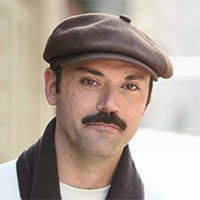North Street Book Prize 2018
Honoring the best self-published books of poetry, children's picture books, genre fiction, literary fiction, and creative nonfiction
Honorable Mention $250
- Petula Caesar, She’s Such a Bright Girl, Creative Nonfiction
- Juliette Chen, Home Water, Poetry
- Barbara Jean Hicks, Once Upon a Parsnip, Childrens Picture Book
- Sarah Hina, Sarabande, Genre Fiction
- K. Gordon Neufeld, Prophet and Loss, Literary Fiction
Thanks to everyone who entered our fourth annual North Street Book Prize for self-published books of genre fiction, mainstream/literary fiction, creative nonfiction/memoir, poetry, and children's picture books. Our new categories proved to be a popular addition, as we received a record 997 entries, more than twice as many as last year! There is so much talent and enthusiasm in the indie author community. To our also-rans, we say, don't be discouraged: maybe one more round of edits will bring you into the winners' circle.
Our first-round screeners, literary scholar Anne Keithline and editor and therapist Lauren Singer Ledoux, worked overtime to create a shortlist of about 50 books for final judges Ellen LaFleche and Jendi Reiter. This year we created score sheets for the screeners to organize their comments about each of the top entries. We also judged all the shortlisted books in hard copy format, even if originally submitted online, to put everyone on a level playing field. This allowed us to carry the books with us through daily life and let their ideas percolate—and it was a lot easier on the eyes!
We will sadly bid farewell to our multitasking Lauren for the 2019 book prize (she will continue to screen other Winning Writers contests) and welcome poet Jim DuBois as her replacement. Jim is already the first-round reader for our Tom Howard/Margaret Reid Poetry Contest.
This was our most diverse entry pool yet, with many intriguing stories about characters occupying a liminal space between nationalities, racial divisions, cultures old and new—even between life and death. Our winners and finalists introduced us to Italian immigrants during the Atlantic City casino boom, a struggling group of multi-racial jazz performers in Los Angeles, refugees from the Cambodian genocide, classical musicians in Paris, a working-class Hispanic boyhood in the Bronx, tragic fables inspired by a woman's Vietnamese-Chinese heritage, a rural New England father coping with a terminal cancer diagnosis, and upwardly mobile African-Americans hitting the barrier of colorism in their own communities.
Child abuse, disability, mental illness, and bereavement remained popular subjects for memoir. We would advise authors in this category as follows: First, consider whether the graphic details are truly necessary to your artistic vision, and if so, use them sparingly, letting one example stand in for a long list of others you may remember. Second, watch out for the narrowing of your mental world. A number of memoirs of this nature came across to us as too self-absorbed. Obsessive disorders, family traumas, or the claustrophobic routine of medical caregiving can isolate the person going through it at the time. It's the writer's role, upon later reflection, to widen the lens again, placing their subjective experience in a more populated and socially aware context.
Fat-shaming and unreflective sexual objectification doomed several otherwise promising entries. We say this every year, but some of you don't understand what a deal-breaker this is. Don't make a point of describing what fat characters are eating, especially if you aren't giving the same attention to your favored characters' food habits and body type. Stop using fatness as code for a greedy, self-indulgent, or uneducated person. It's cruel and lazy writing.
Attention, male narrators: a running commentary on every female character's sexual attractiveness is not the same as character development. Maybe this is true to the interior monologues of a lot of straight men, but your book shouldn't further normalize a problematic practice in our culture. Writers are always being selective about which of a character's thoughts they include on the page; this is a good place to start. Meanwhile, women writers were not immune to the subtle sexism of depicting a female character as unsympathetic because of her clothing and cosmetics choices.
In our first year judging children's books, we were delighted by the variety of whimsical concepts and beautiful illustrations. Jendi drew on six years' experience reading bedtime stories to the Junior Editor to evaluate the stories' kid appeal. Was this a book that a real child would ask to re-read, or was it mainly something that well-meaning adults would purchase to teach a moral lesson? Was the text too complex for the picture-book age group? As a grandmother, Ellen honed in on issues of readability for older adults and beginning readers. Was the print large enough, well-integrated into the visual elements, and free of typos? It was hardest to pick just two winners in this category because we enjoyed so many of the entries.
In poetry, we looked for the right blend of stylistic variation and a consistent voice. We liked the trend of hybrid collections that included short prose, photos, or illustrations with the poems. The key to success with these is ensuring that each genre element is equally strong. There should be a reason why this subject matter needs to be expressed in an unconventional format. We were drawn to books that had a strong sense of place and a perspective that taught us something new.
Our Winners
Emily Bracale won our Grand Prize for her graphic narrative Our Last Six Months, a tender, homespun, and informative memoir of how her blended family came together to nurse her ex-husband through terminal cancer. With deep affection but no sentimental easy answers, her telling makes space for the complicated emotions that caregivers may have about their sick or dying loved ones. The book also serves as an accessible reference guide to navigating end-of-life medical decisions. We were so impressed with the potential of this format that we are adding a Graphic Narrative category for the 2019 prize.
Jeannine Bernardi took First Prize in Children's Picture Book for A Friendship Forever, illustrated by Rob Hay. This gentle story centers on a young chimpanzee whose best friend has died. Its simplicity makes it profound enough to touch readers of all ages. The lush and scientifically accurate pictures of rainforest flora and fauna provide a visual representation of grief cradled in a larger reality of ongoing abundant life. An afterword for adults offers more information about protecting these animals' habitat.
Honorable Mention in Children's Picture Book went to Barbara Jean Hicks and Kevin R. Wood for Once Upon a Parsnip, illustrated by Ben Mann. This rhyming saga fractures several fairy tales and rearranges them into a goofy mosaic, where all the characters get an upbeat and nonviolent ending that's anything but Grimm. Both of these books stood out for how well the text was integrated into the illustrations.
Carol DeMent won First Prize in Genre Fiction for Saving Nary, a wrenching yet ultimately inspirational historical novel about refugees from the 1970s Cambodian genocide who are resettled in small-town Oregon. This well-researched drama explores complicity, political paranoia, and personal and national healing from unthinkable events—issues that remain highly relevant to our current refugee crises.
Honorable Mention in Genre Fiction went to Sarah Hina's Sarabande, a lyrical romance novel about a world-renowned cellist and the museum curator who digs up her buried childhood time capsule in his backyard.
Angela Carole Brown won First Prize in Mainstream/Literary Fiction for Trading Fours, a contemporary tale of broken dreams and found families in the Los Angeles jazz scene. The classical dramatic principles—unity of place and time—show their worth in this tightly woven story. Four protagonists' soul-searching journeys converge on the evening of a medical fundraiser for a dying composer who never received the recognition he deserved. It's an uncomfortably real depiction of the precarity of the gig economy, as well as the challenge of staying motivated as an artist when youth and fame have passed you by.
Honorable Mention in Mainstream/Literary Fiction went to K. Gordon Neufeld's Prophet and Loss: Stories of Extreme Beliefs, a slender but wide-ranging collection of vignettes about victims and survivors of religious cults, partly based on the author's past entrapment by the Unification Church.
Francesco Granieri won First Prize in Nonfiction for Pavarotti and Pancakes, his memoir of growing up with a mother who slid into psychosis because of sexual abuse in her childhood. Part family saga, part cultural history of Italian-American manhood, "Chichi's" tragicomic coming-of-age narrative is set against a backdrop of the rise and fall of casino empires in Atlantic City, NJ. It's rare for the judges to pick up a 500-page memoir and be riveted till the last page.
Honorable Mention in Nonfiction went to Petula Caesar for She's Such a Bright Girl: An American Story, a black woman journalist's memoir of colorism and classism in her relationship with her beloved, difficult father. In this concise book, Caesar selects the most noteworthy anecdotes from a lifetime of family and social pressure to take advantage of light-skin privilege, at the price of estrangement from her blackness.
W.R. Rodriguez took First Prize in Poetry for his collection From the Banks of Brook Avenue, a soot-stained love letter to New York City. His plain-spoken, witty, and justice-seeking poems reveal layers of history in a city that's always creating and destroying shelter for a new generation of laboring dreamers.
Honorable Mention in Poetry went to Juliette Chen's Home Water: Poems, Stories, Prints, an elegant and moving collection that marries lyric poems with original artwork and magical-realist stories inspired by her mixed Vietnamese-Chinese heritage.
We would like to recognize and encourage these finalists:
Children's Picture Book
- Darrell House, The King of Fish
- Jeaninne Escallier Kato, Manuel's Murals
Genre Fiction
- Kristin A. Oakley, God on Mayhem Street
Mainstream/Literary Fiction
- Kathleen Jowitt, A Spoke in the Wheel
- Moreniké, Running From Color
Nonfiction
- Rebecca G. Morris, How the Camp Fire Girls Won World War II
Poetry
- Hanoch Guy Kaner, Terra Treblinka
- Rita Brady Kiefer, Crossing Borders
See our press release about the winning entries. See the current contest.
Contest Judges

Jendi Reiter
Jendi Reiter is vice president of Winning Writers, editor of The Best Free Literary Contests, and oversees the Winning Writers literary contests. Jendi is the author of the novel Origin Story (Saddle Road Press, 2024), the short story collection An Incomplete List of My Wishes (Sunshot Press, 2018), the novel Two Natures (Saddle Road Press, 2016), the poetry collections Made Man (Little Red Tree Publishing, 2022), Bullies in Love (Little Red Tree Publishing, 2015), and A Talent for Sadness (Turning Point Books, 2003), and the award-winning poetry chapbooks Swallow (Amsterdam Press, 2009) and Barbie at 50 (Cervena Barva Press, 2010). Awards include a Massachusetts Cultural Council Artists' Grant for Poetry, the 2016 New Letters Prize for Fiction, the 2016 Rainbow Award for Best Gay Contemporary Fiction, the 2015 Wag's Revue Poetry Prize, the 2013 Little Red Tree International Poetry Prize, the 2012 Betsy Colquitt Award for Poetry from Descant magazine, the 2011 James Knudsen Editor's Prize in Fiction from Bayou Magazine, the 2011 OSA Enizagam Award for Fiction, the 2010 Anderbo Poetry Prize, and second prize in the 2010 Iowa Review Awards for Fiction. Jendi's work has appeared in Poetry, The New Criterion, Mudfish, Passages North, Cutthroat, Best American Poetry 1990, and many other publications. See their interviews in RoundPier and Lammergeier.
Photo by Ezra Autumn Wilde
Contest Judges

Ellen LaFleche
Ellen LaFleche is a past judge of our North Street Book Prize. She has worked as a journalist and women's health educator in Western Massachusetts. Her manuscript, Workers' Rites, won the Philbrick Poetry Award from the Providence Athenaeum and was published as a chapbook in 2011. Another chapbook, Ovarian, was published in 2011 by the Dallas Poets Community Press, and a third chapbook, Beatrice, about a semi-cloistered nun, was published in 2012 by Tiger's Eye Press. Her poems have been published in Spoon River Poetry Review, Hunger Mountain, New Millennium Writings, The Ledge, Alligator Juniper, Many Mountains Moving, Harpur Palate, Southeast Review, and Naugatuck River Review, among many others. Prose credits include her 2014 Daily Hampshire Gazette article "Taken too soon, at 65: My husband John Clobridge's final days with ALS". She also reviews books for Wordgathering, the online journal of disability poetics. She has won the Ruth Stone Poetry Prize, the New Millennium Poetry Prize (shared with Jim Glenn Thatcher), the DASH Poetry Journal Prize, the Poets on Parnassus Prize for poetry about the medical experience, second prize in The Ledge Poetry Awards, and the Editor's Choice Award for Poetry from Writecorner Press.
Contest Judges

Annie Mydla
Annie Mydla is the managing editor of Winning Writers. Born in Boston in 1989, she moved to Poland at the age of twenty-seven, where she now lives full time. Annie has critiqued over 600 full-length books and manuscripts through her work with the Winning Writers critique service and the North Street Book Prize, and read over 8,000 self-published books as a North Street assistant judge. She and her team deliver North Street judging feedback to approximately 1,500 authors per year. Annie oversees a staff of five in Poland, coordinates contest administration and customer service, and helps maintain the Winning Writers website. She is a literary scholar and writer. Check out her Winning Writers blog posts on writing craft and industry success. Outside of work, Annie is the founder and facilitator of Autistic Women's Group (est. 2021) and the editor of its journal for literary, visual, and audio art, AWG Shares Magazine.
Contest Judges

Lauren Singer
Lauren Singer is an assistant judge of our Wergle Flomp Humor Poetry Contest and North Street Book Prize, and a past judge of our Tom Howard/John H. Reid Fiction & Essay Contest. She is a native New Yorker living in Western Massachusetts. Her poetry has been published in Nerve House, Bareback, Feel the Word, Read This, Kosmosis, One Night Stanzas, and other literary magazines across the country. An attendee of the New York State Summer Writer's Institute, she is a graduate of Bard College at Simon's Rock and received her MSW at the University of Chicago in 2015. She has self-published three chapbooks and received an honorable mention in the 2011 Wergle Flomp contest. In addition to her creative interests, Lauren works as a sex and relationship therapist and runs a private practice out of Northampton, MA. Her book-length poetry manuscript, Raised Ranch, will be published by Game Over Books in April of 2025. She prides herself on her wealth of useless pop culture knowledge, namely of nineties R&B lyrics, and she can pretty much quote "The X-Files".













